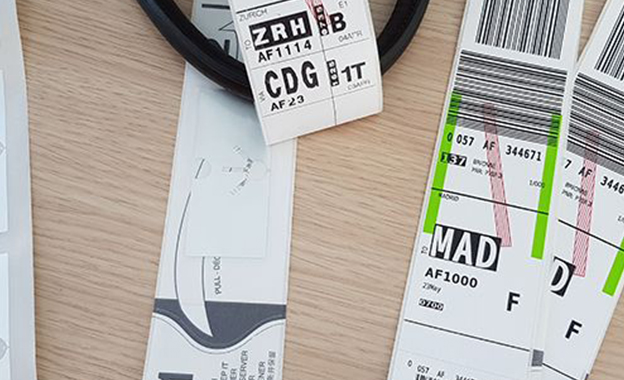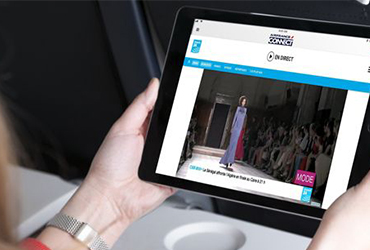Air France and Paris Aéroport launch cooperation to ensure baggage tracking using RFID Technology
 Air France and Paris Aéroport launch cooperation to ensure baggage tracking using RFID Technology
Air France and Paris Aéroport launch cooperation to ensure baggage tracking using RFID Technology
As from 2020, Air France will ensure baggage tracking at Paris-Charles de Gaulle airport using tags equipped with RFID chips in cooperation with Paris Aéroport. Air France is one of the very first airlines in the world to have decided, in collaboration with Paris Aéroport, to implement the use of RFID technology. For Air France in 2020, this represents about 8 million pieces of baggage per year which will be tagged in this way.
This technology will gradually be deployed at Air France's other airports, as well as at all Paris-Charles de Gaulle terminals, particularly Terminal 1.
For Air France and Paris Aéroport, the challenges are twofold:
- Respond to customers' need for information about their baggage;
- Improve baggage identification and tracking (with gains in operational performance) and reduce associated operating costs.
The air transport industry is preparing to carry more than 7.8 billion passengers per year
Over the next few years, the estimated growth in air traffic should lead to a doubling of the number of bags transported annually, which currently stands at 4.6 billion1.
Within the framework of its resolution 753, IATA (International Air Transport Association) stipulates in particular that baggage must be traced throughout its journey (at check-in, boarding, transfer and arrival). It also recommends the global deployment of baggage tracking using radio frequency identification (RFID) chips.
Airlines have therefore committed to changing their baggage tags to RFID tags over the next few years.
Alain-Hervé Bernard, Chief Operating Officer at Air France, said: "Air France and Paris Aéroport have a common challenge in terms of customer satisfaction and the smooth running of our operations. With more than 50 million customers carried on board our flights each year, RFID technology provides us with an innovative solution to improve the tracking and identification of baggage, guarantee its transit under optimal safety and security conditions, reduce our costs and improve our operational performance by reducing the time it takes to find missing items.”
Marc Houalla, Managing Director of Paris-Charles de Gaulle Airport, commented: "The use of RFID technology improves the processing of checked baggage by reducing handling and transfer times, optimizing capacity and significantly facilitating baggage tracking. This technology is a must in our aim to be one of the best airports in the world for baggage handling.”



